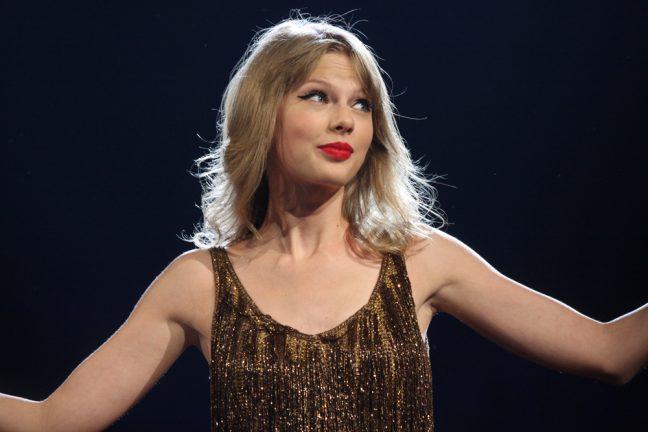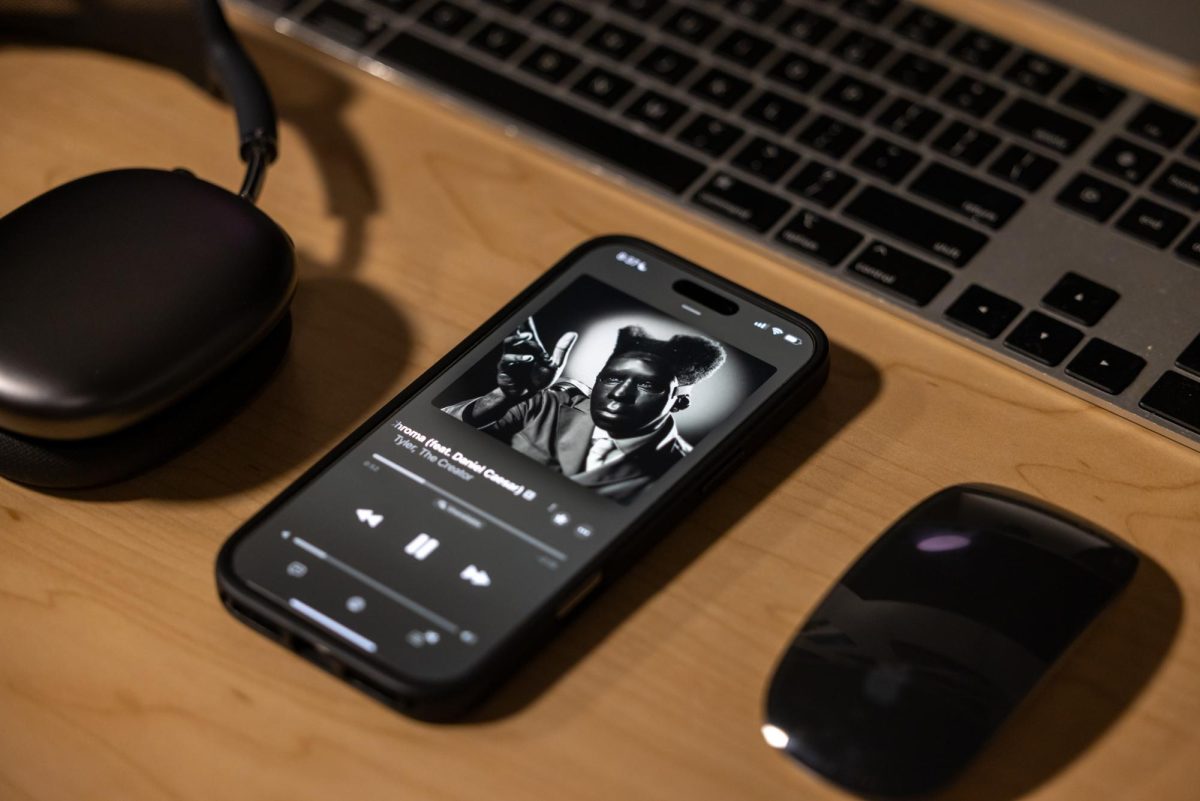It’s really too bad the old Taylor can’t come to the phone right now because the new one kind of sucks.
Since the release of her new album Reputation last week, Taylor Swift has had the media spotlight all to herself. It has been so prominent that it has made even the most deep rooted of Swift opposers want to hear what all the fuss is about. Unfortunately, if you’re not looking to hand Swift and iTunes $14 worth of your hard earned money, you’re out of luck.
As we have learned from her single “Look What You Made Me Do,” Swift has a hard time dealing with the haters. The whole song is about everything her critics have ever said about her, in addition to her drama with other celebrities. Based on the gossip about Swift leading up to the album, it is easy to guess this song is directed at none other than Kanye West.
For those of you who don’t know, Swift and West have had an ongoing feud since 2009 that recently culminated in Kim Kardashian, Kanye’s wife, releasing a recorded phone conversation proving Taylor was a liar.
After this, Taylor was not seen or heard from for about a year. She retreated into some kind of celebrity shell where it is to be assumed that she spent every waking moment thinking about how to get back at Kanye and the army of people he turned against her.
Wait it's legit National Snake Day?!?!?They have holidays for everybody, I mean everything these days! 🐍🐍🐍🐍🐍🐍🐍🐍🐍🐍🐍🐍🐍🐍🐍🐍🐍🐍🐍🐍🐍🐍🐍🐍🐍🐍🐍🐍🐍🐍🐍🐍🐍🐍🐍🐍🐍
— Kim Kardashian (@KimKardashian) July 17, 2016
Now, in addition to writing a whole album about how she can’t deal with people who don’t like her, she is limiting people from listening to that album. Reputation cannot be found on any other platform than iTunes for a fee, which only fans are likely to pay. So, unless you have been on Taylor’s side the whole time, she doesn’t want you as a fan anymore and you can’t listen to her music.
Since I had already set aside time to listen to this album, I had no problem finding reasons to be mad when I couldn’t find it anywhere. I began research on Swift’s long battle with music streaming services.
When Spotify and other streaming services started becoming more popular, Swift was very hesitant to let her catalog be a part of what their users would have access to. When Apple decided to move into this market with Apple Music, Swift was not going to let them without a fight.
She composed an open letter to Apple Music entitled “Dear Apple, Love Taylor.” Her main argument within the letter is that it is not fair for up-and-coming artists to not be properly compensated by Apple for their music. The argument is very persuasive by itself, but it loses a good amount of power because of its source.
Because of recent events and issues I had with the letter in 2015 when she wrote it, I have decided to compose my own letter to Taylor. So, here it is, a letter to Taylor from a fan turned hater.
Dear Taylor,
I think you mean well. I think that you wanted to use your power and celebrity to stand up for struggling artists and get them the respect they deserve. I want so badly to believe that this was your intention the whole time and not just a nice way to say, “Screw you Apple, I need a new beach house.” But honestly, the more I hear about your actions, the harder it is to believe that.
In your original letter to Apple, you continuously state that it is not about you, and that it’s not about greed, but are you sure?
You originally excluded your work from the Spotify library, but now it’s there. Yes, you got Apple to give the smaller artists the compensation they deserved, but that’s really all you’ve done for them.
In your year off, you could have spent time hyping up the artists you try so hard to prove that you support. You could have used your social media following to create fan bases for artists overnight. You could have gone to coffee shops to hear them play. You could have done a lot more if it was really about them.
Instead, you routinely turn your fans away from you by suing them for selling products online that were related to you and your brand. You also spent an entire year writing and producing an album whose goal is to make someone who did something wrong look bad, and then limited it to only those willing to buy it on iTunes. That album serves as the very symbol of the new figure you have become.
This is not the Taylor I grew up admiring. This is not the Taylor who made me want to step out of my comfort zone and learn to play guitar. This is not the Taylor who was a role model to me and so many others.
If the old Taylor ever is able to come to the phone, please tell her we all kind of miss her.














